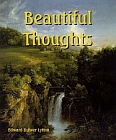
|
Historical Reprints
PROBLEMS OF CONDUCT
|
PROBLEMS OF CONDUCT

Description
An Introductory Survey of Ethics
by
DURANT DRAKE
A.M. (Harvard) Ph.D. (Columbia)
Associate Professor of Ethics and
Philosophy of Religion at
Wesleyan University
1914
This TGS Historical Reprint is brought back as the President of the USA, his Administration, and his Party, are riddled, nay--- infested with severe ethical and moral dilemmas. Report after report comes at us daily about a lack of ethics, honor, and integrity among elected, appointed, and hired government officials. The Foxes are in the hen house. This research, from 1914 is a Christian and Secular perspective on just what ethics really are.
What is the field of ethics? HiddenMysteries
Excerpt from the Introduction:
To know what exists, in its stark reality, is the concern of natural science and natural philosophy; to know what matters, is the field of moral philosophy, or ethics. The one group of studies deals with facts simply as facts, the other with their values. Human life is checkered with the sunshine and shadow of good and evil, joy and pain; it is these qualitative differences that make it something more than a meaningless eddy in the cosmic whirl. Natural philosophy (including the physical and psychological sciences), drawing its impartial map of existence, is interesting and important; it informs us about our environment and ourselves, shows us our resources and our powers, what we can do and how to do it.
Moral philosophy asks the deeper and more significant question, What SHALL we do? For the momentous fact about life is that it has differences in value, and, more than that, that we can MAKE differences in value. Caught as we are by the irresistible flux of existence, we find ourselves able so to steer our lives as to change the proportion of light and shade, to give greater value to a life that might have had less. This possibility makes our moral problem. What shall we choose and from what refrain? To what aims shall we give our allegiance? What shall we fight for and what against?
 For the savage practically all of his activity is determined by his imperative needs, so that there is little opportunity for choice or reflection upon the aims of his life. He must find food, and shelter, and clothing to keep himself warm and dry; he must protect himself from the enemies that menace him, and rest when he is tired. Nor are most of us today far removed from that primitive condition; the moments when we consciously choose and steer our course are few and fleeting.
For the savage practically all of his activity is determined by his imperative needs, so that there is little opportunity for choice or reflection upon the aims of his life. He must find food, and shelter, and clothing to keep himself warm and dry; he must protect himself from the enemies that menace him, and rest when he is tired. Nor are most of us today far removed from that primitive condition; the moments when we consciously choose and steer our course are few and fleeting.
Yet with the development of civilization the elemental burdens are to some extent lifted; men come to have superfluous strength, leisure hours, freedom to do something more than merely earn their living. And further, with the development of intelligence, new ways of fulfilling the necessary tasks suggest themselves, moral problems arise where none were felt before. Men learn that they have not made the most of their opportunities or lived the best possible lives; they have veered this way and that according to the moment's impulse, they have been misled by ingrained habits and paralyzed by inertia, they have wandered at random for lack of a clear vision of their goal.
The task of the moralist is to attain such a clear vision; to understand, first, the basis of all preference, and then, in detail, the reasons for preferring this concrete act to that. Here are a thousand impulses and instincts drawing us, with infinite further possibilities suggesting themselves to reflection; the more developed our natures the more frequently do our desires conflict. Why is any one better than another? How can we decide between them? Or shall we perhaps disown them all for some other and better way.
Man's effort to solve these problems is revealed outwardly in a multitude of precepts and laws, in customs and conventions; and inwardly in the sense of duty and shame, in aspiration, in the instinctive reactions of praise, blame, contentment, and remorse.
The leadings of these forces are, however, often divergent, sometimes radically so. We must seek a completer insight. There must be some best way of solving the problem of life, some happiest, most useful way of living; its pursuit constitutes the field of ethics. Nothing could be more practical, more vital, more universally human.
Why should we study ethics?
Softbound, 5.5x8, 320+ pages















